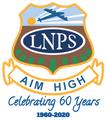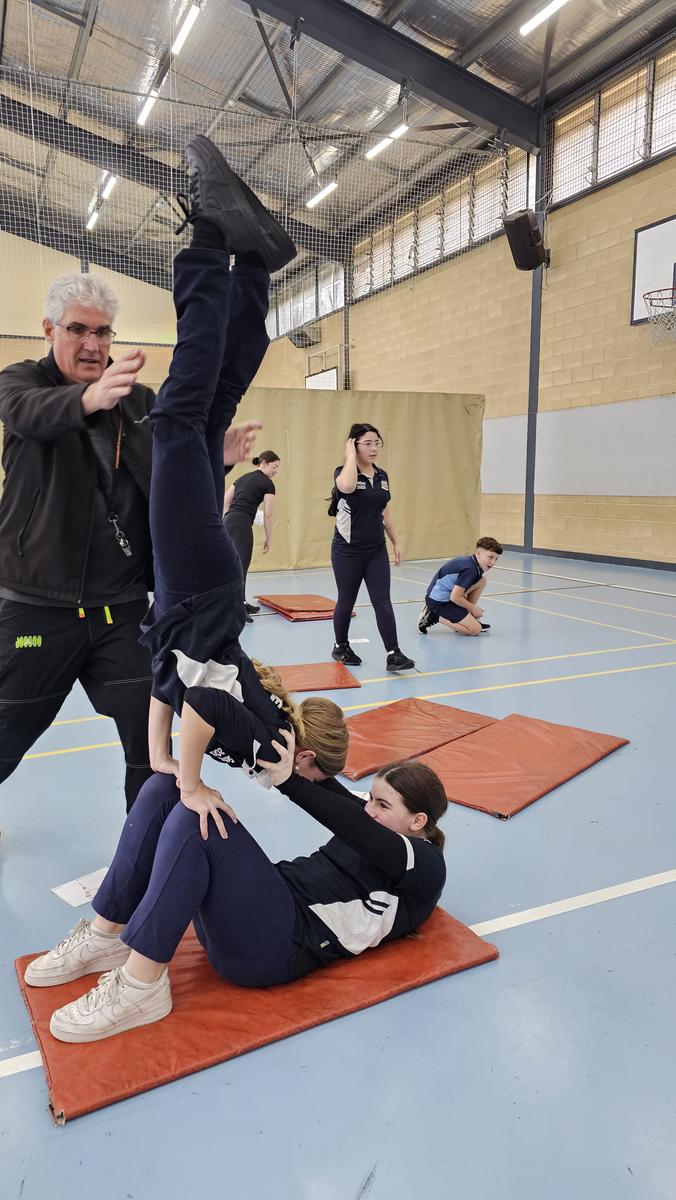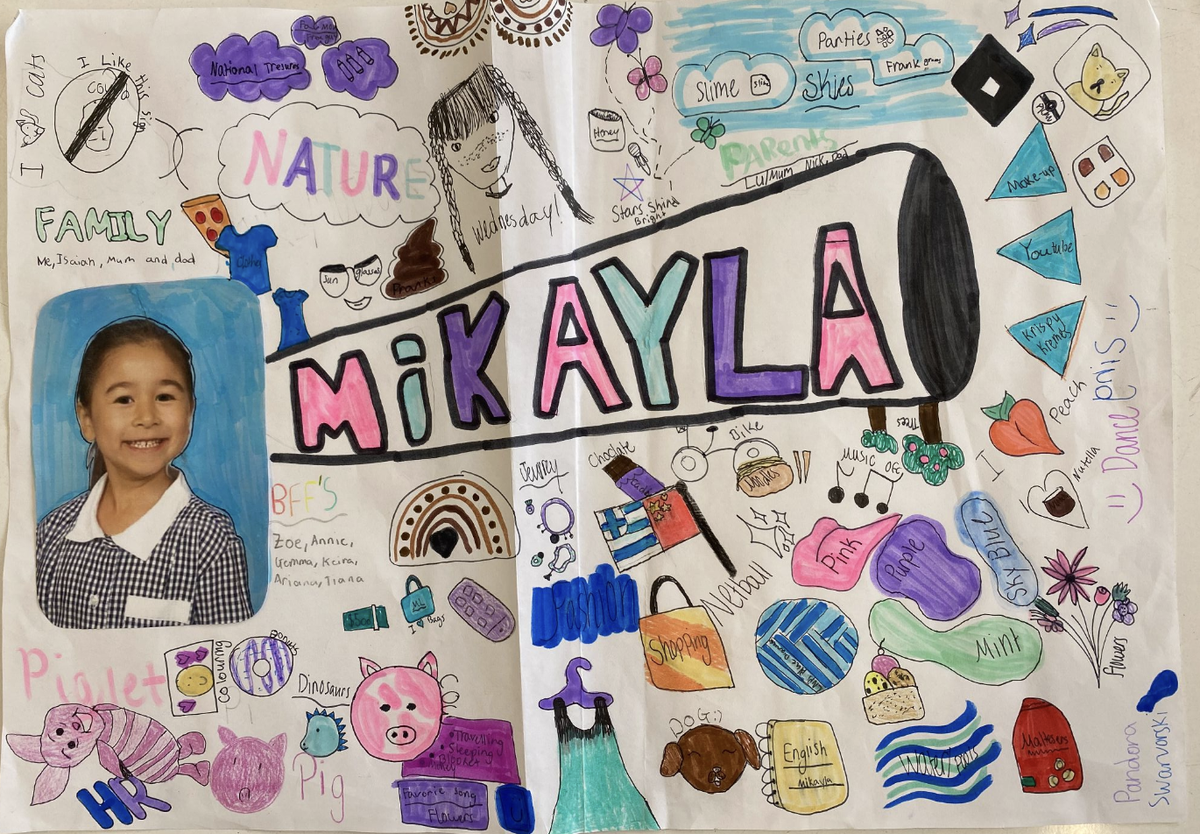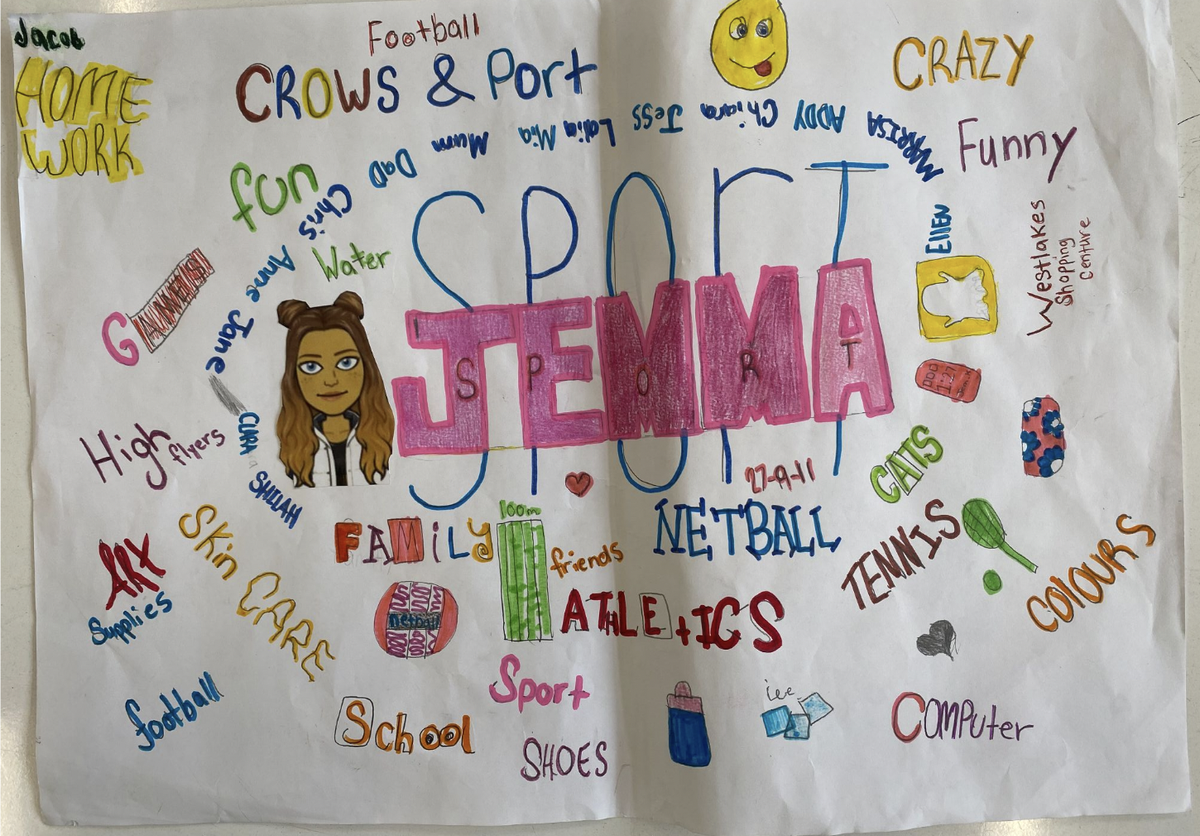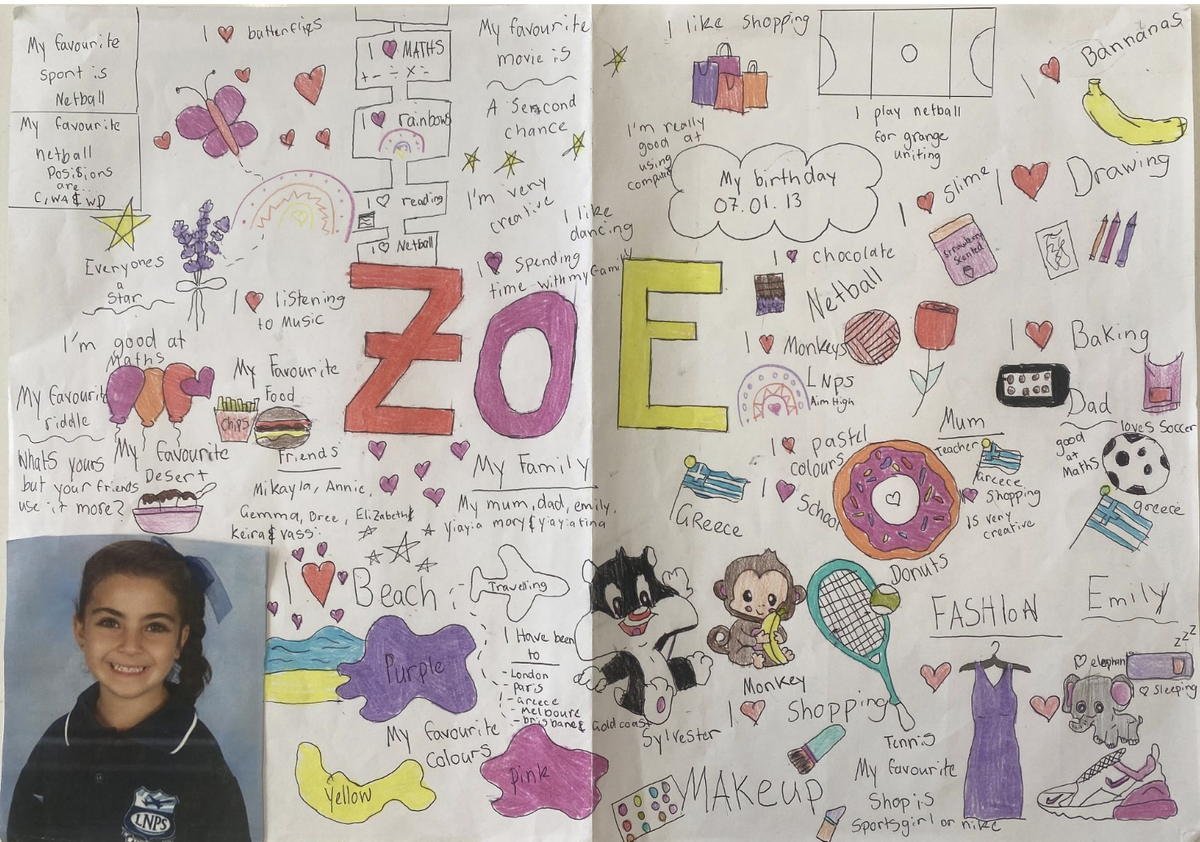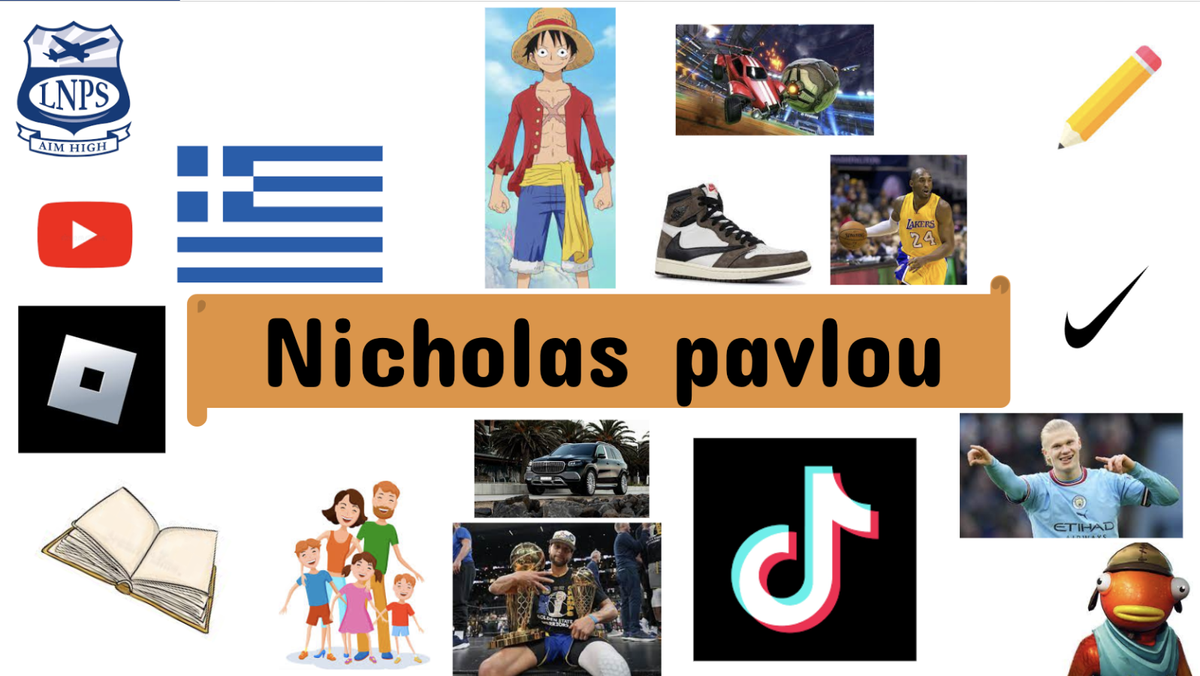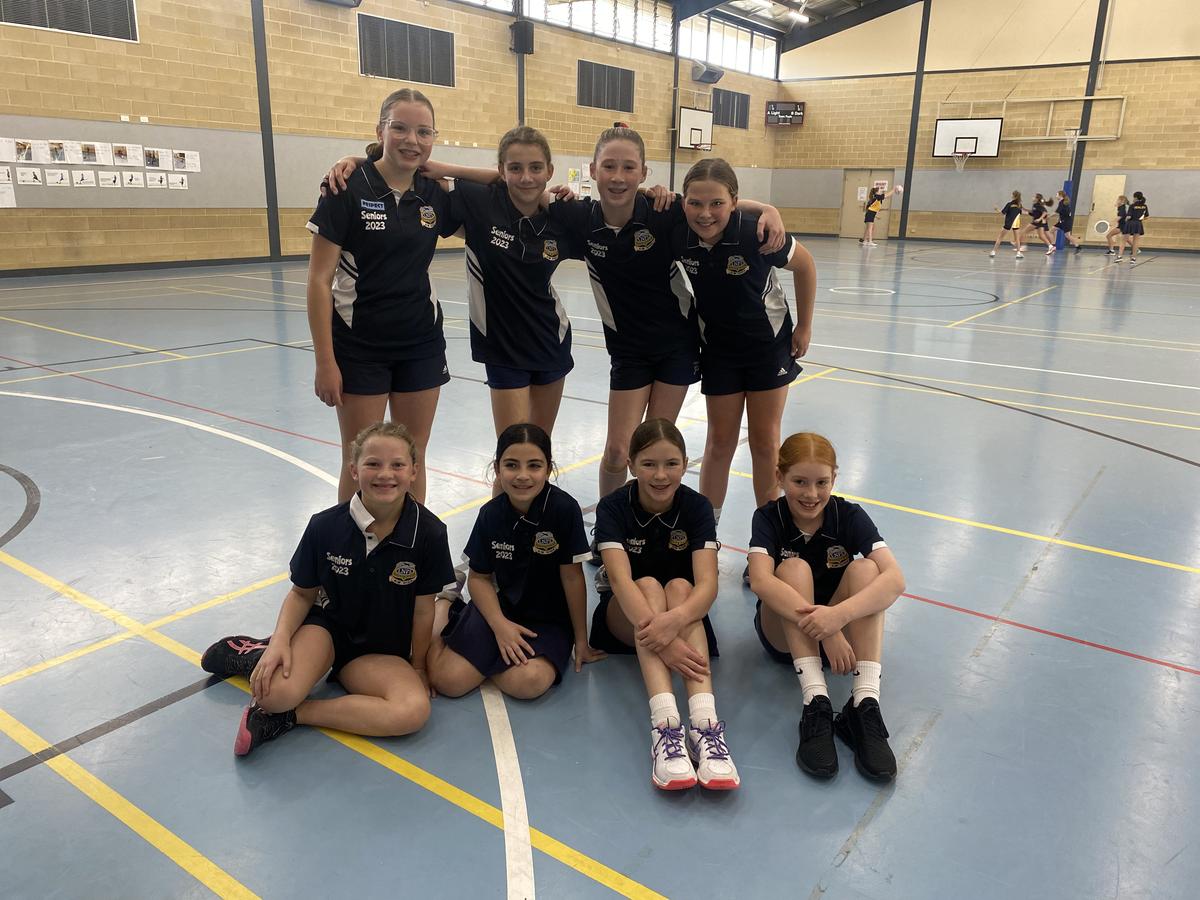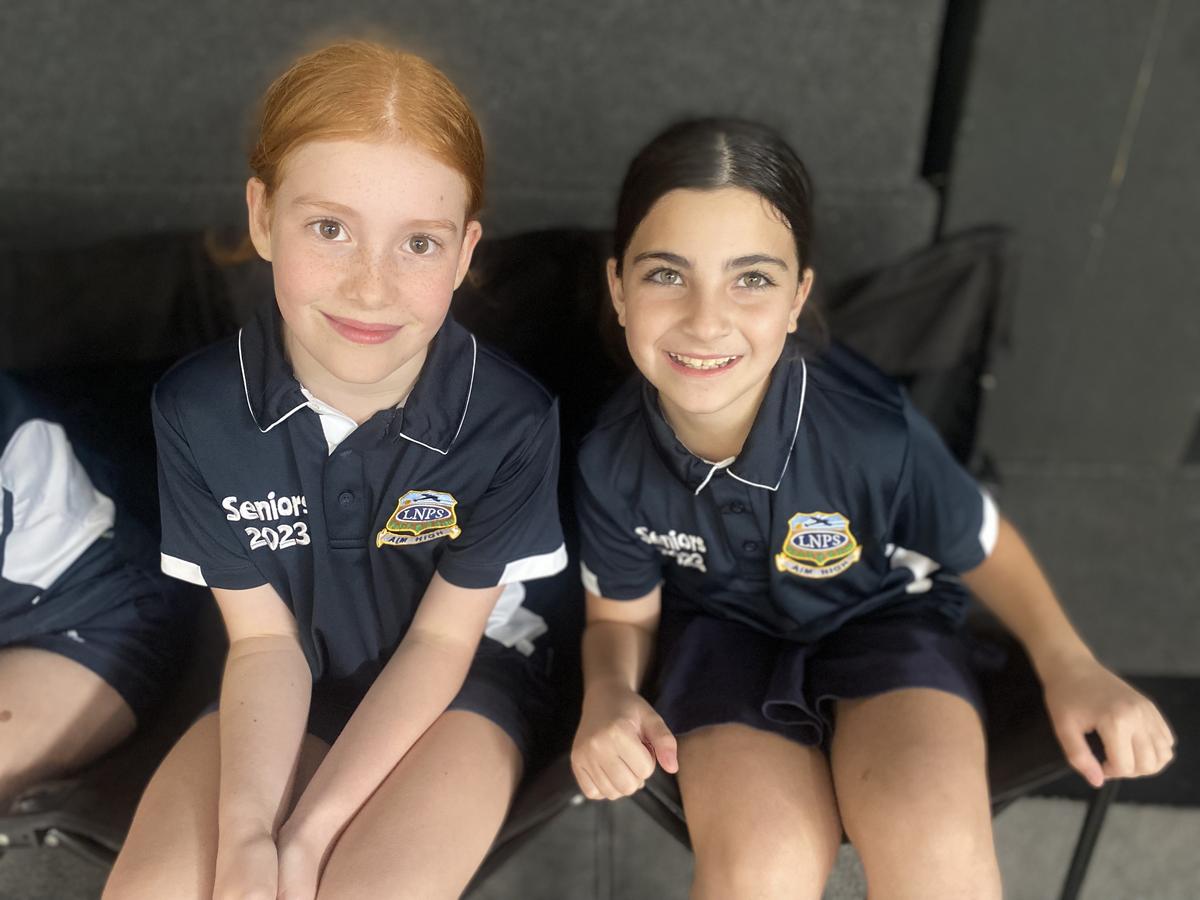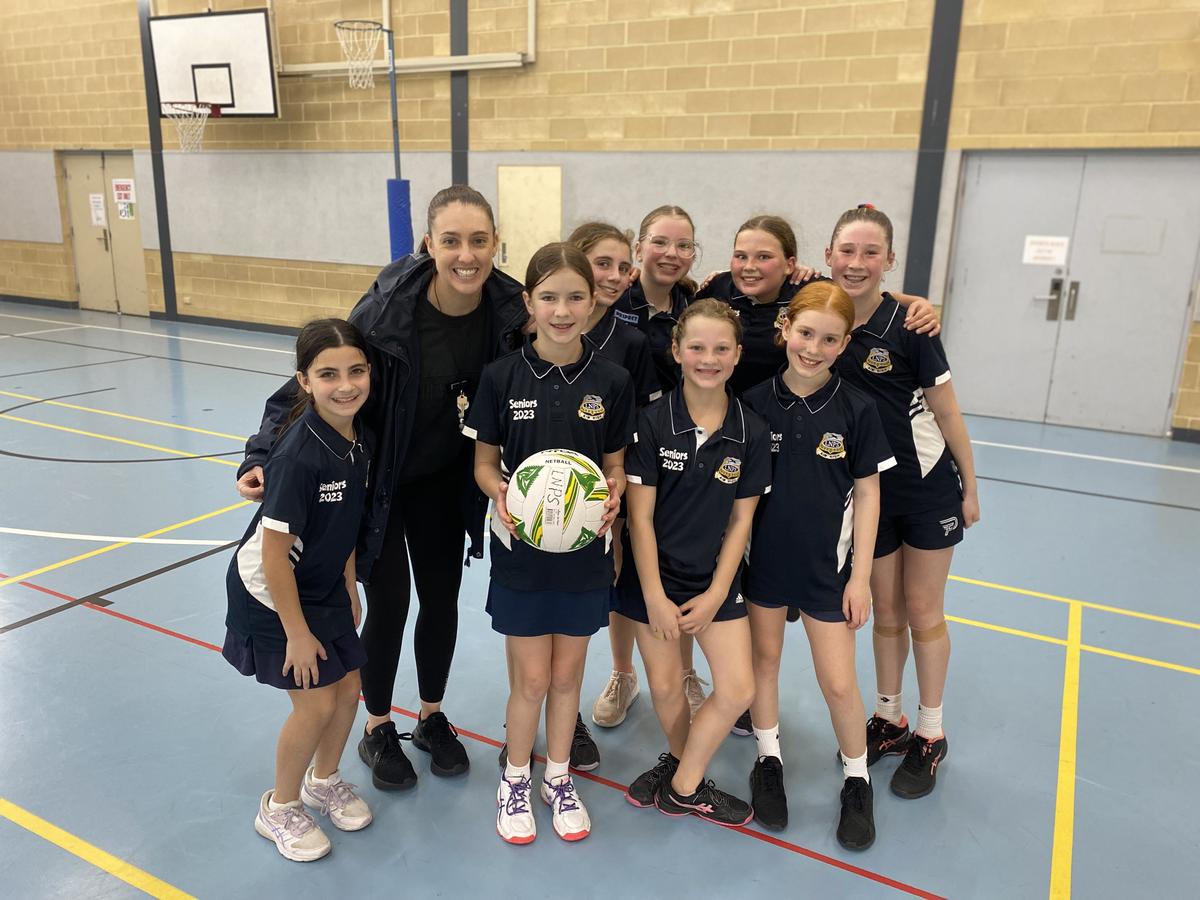HEALTH & PE

This semester in PE we are learning about invasion and net games.
FISHER PE
Units Covered:
Badminton, Gymnastics, Volleyball, Cricket, Lacrosse, Softball.
Learning Intentions:
- We are learning to play fairly and to follow the rules.
In this unit, students will:
- demonstrate fair play and skills to work collaboratively during games and activities
- interpret and apply the rules in the spirit of the game
- propose and apply attacking and defensive strategies for net and wall games
- perform specialised skills of tennis and volleyball
- demonstrate the ability to negotiate and responsibly perform roles in games
- participate in a cultural games and examine how involvement supports cultural understanding
- propose changes to modify game rules for inclusivity and a fairer contest
Achievement Standards:
Students demonstrate fair play and skills to work collaboratively. They access and interpret health information and apply decision-making and problem-solving skills to enhance their own and others’ health, safety and wellbeing. They perform specialised movement skills and sequences and propose and combine movement concepts and strategies to achieve movement outcomes and solve movement challenges. They apply the elements of movement when composing and performing movement sequences.
This semester in Health we are learning about health and habits, online protocols and changes.
HEALTH
Healthy Habits
Learning Intentions:
- We are learning about healthy habits and strategies that promote and maintain health and wellbeing
In this unit, students will:
- Students will investigate developmental changes and transitions.
- Students will access and interpret health information and apply decision-making and problem-solving skills to enhance their own and others’ health, safety and wellbeing.
- Students will describe their own and others’ contributions to health, physical activity, safety and wellbeing.
Achievement Standards:
Students will explain the influence of people and places on identities. They recognise the influence of emotions on behaviours and discuss factors that influence how peopleinteract. Students will describe the key features of health-related fitness and the significance of physical activity participation to health and wellbeing. They will examine how physical activity, celebrating diversity and connecting to the environment support community wellbeing and cultural understanding.
Netiquette and online protocols
Learning Intentions:
- We are learning to recognise health and wellbeing benefits and risk factors of belonging and interacting online
In this unit, students will:
- Students will examine the need to balance time spent using electronic devices and playing outdoors (General Capability
- Students will examine how personal information is used and shared including the giving and receiving of consent and developing help seeking strategies
- Students will review websites and interpret health messages about cybersafety
- Students will explore how online behaviours and actions affect digital footprints
- Students will examine different types of communication used online including strategies of seeking, receiving, and declining of consent and how to interact with respect and empathy
Achievement Standards:
Students will identify influences that strengthen identities and describe strategies to manage emotions, changes and transitions. They will apply skills and strategies to interact respectfully with others. They describe the influences that inclusion and stereotypes have on choices and actions. Students will describe and apply protective behaviours and help seeking strategies to keep themselves and others safe online and offline. They interpret health information to apply strategies to enhance their own and others’ health, safety, relationships and wellbeing.
Drink Detectives
Learning Intentions:
- We are investigating how drink choices affect health and wellbeing
In this unit, students will:
- define and describe how drink choices affect health and wellbeing
- investigate, analyse, and reflect on healthy drink choices
- interpret food and drink labels and apply informed decision making for healthy choices
- access, understand and explain how preventive health practices influence and contribute to promoting and maintaining health, safety, and wellbeing
- identify and propose preventive health strategies to encourage and maintain the health and wellbeing of individuals and their communities
Achievement Standards:
They analyse health information to refine strategies to enhance their own and others’ health, safety, relationships and wellbeing. Students propose strategies to promote physical activity participation that enhance health, fitness and wellbeing.
Changes
Learning Intentions:
- We are investigating skills and strategies to manage change in our lives.
In this unit, students will:
- examine how identities are influenced by people and places
- recognise that feelings and emotions affects behaviour
- investigate the skills and strategies to manage change in our lives
- explain how respectful communication skills support positive relationships
- utilise a range of resources in the community to help cope with new situations and support wellbeing
- analyse how valuing diversity has positive influences on individuals and communities
Achievement Standards:
Students will propose strategies to manage emotions, developmental changes and transitions. They analyse health information to refine strategies to enhance their own and others’ health, safety, relationships and wellbeing.
CHILD PROTECTION CURRICULUM
We will be teaching the Child Protection Curriculum as part of the Health Curriculum. All Fisher classes will be engaging with the Keeping Safe: Child Protection Curriculum (KS:CPC)
There are 2 main themes:
- We all have the right to be safe
- We can help ourselves to be safe by talking to people we trust
The four main focus areas are:
The right to be safe: Exploring the concept of safety, reviewing the concept of warning signs, unsafe situations and acceptable risk-taking
Relationships Understanding rights and responsibilities, trust and networks, developing personal identity, power in relationships
Recognising and reporting abuse: Privacy and names of parts of the body, recognising abuse, neglect and unsafe secrets, electronic media safety
Protective strategies: Problem-solving for keeping safe and review of networks
More information can be found on the DECD child protection curriculum site
